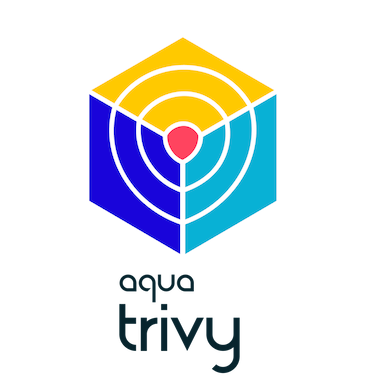2 minutes
Trivy - Scan Container Images

Trivy
Trivy is a scanner for vulnerabilities in container images, file systems, git repositories and configuration. It’s an Aqua Security open-source project that can be easily used to integrate with our existing CI CD pipeline or used as a stand-alone tool to scan container images deployed on the Kubernetes cluster.
We were using Clair previous to our switch to Trivy as we analyzed both the tools and found Trivy to be more helpful for the longer run - it was faster, had more CVE database updates as compared to Clair and didn’t depend on external clients to interact/scan.
Usage
For stand-alone usage, simply download the binary on your Mac/Linux system and scan images or file systems or configuration as below
# for scanning images
trivy image [image-name]
trivy image alpine:latest
# for scanning file system
trivy fs --security-checks vuln,config [YOUR_PROJECT_DIR]
trivy fs --security-checks vuln,config my_project/
# for scanning configuration
trivy config [YOUR_IAC_DIR]
trivy config terraform/src
Trivy is a feature-rich tool and once you start using the same, you will recommend it to everyone who isn’t using it due to its simplicity.
Use-case
We scan the images in our build CI pipeline, but once deployed on the Kubernetes cluster, we were trying to find a tool which would scan the deployed images, we found Trivy can be used as an alternative if you don’t have run-time scanners like Palo Alto Twistlock Defender which does more than just scanning.
We were re-scanning the images from our registry, but only the ones which are already running on our cluster.
We get the list of images using the below kubectl API call and then iterate over those images to generate either HTML or JSON format reports as per the need.
# to get the list of images running on the cluster
kubectl get pods --all-namespaces -o jsonpath="{.items[*].spec.containers[*].image}" |tr -s '[[:space:]]' '\n' |sort |uniq -c
# then we use the output list from the above command to iterate over each image to get the desired output
# to get only critical vulnerabilities on library layer
trivy image -s CRITICAL --vuln-type library --ignore-unfixed --format json -o my-app-1.4.3.json registry.mycompany.com/containers/my-app:1.4.3
# to get all vulnerabilities in HTML format
trivy image --format template "@contrib/template.html" -o my-app-1.4.3.html registry.mycompany.com/containers/my-app:1.4.3